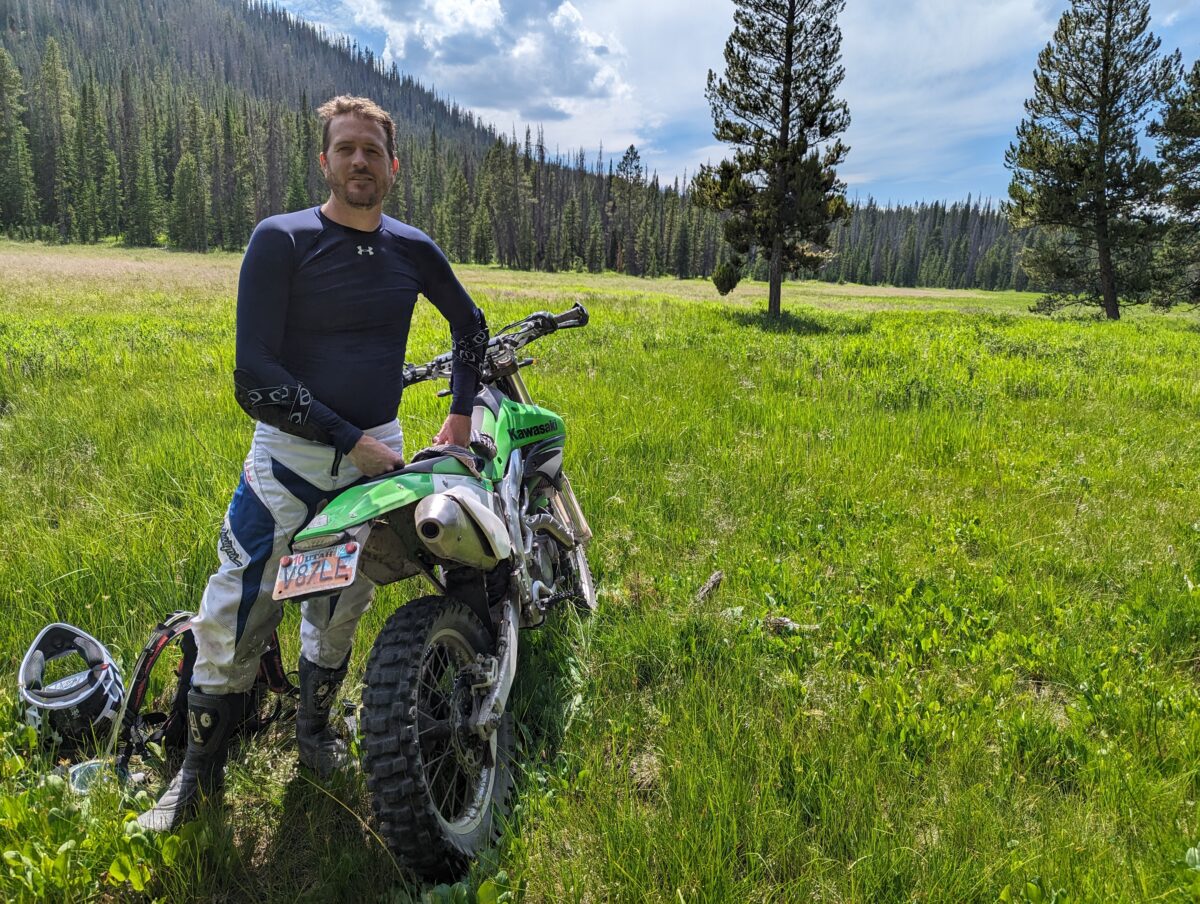Me, Myself, as Mommy: Potential of selling of public lands is concerning
- Meg Sanders’ family explores the Wasatch Mountains
- Meg Sanders’ family explores the Wasatch Mountains
- Meg Sanders’ family explores the Wasatch Mountains
- Meg Sanders
A couple of years ago, we bought dirt bikes for each of our children. We’ve hit up the popular trails in Northern Utah like Avon Pass, Skyline Drive and Bountiful Peak but continuously struck out on finding trail access in Monte Cristo. More often than not, we’re met with gates blocking access to trails my husband and I rode as teens 30 years ago. Here we sit in the shadows of monumental mountains and yet the opportunities to enjoy those spaces are disappearing. They are disappearing at the hands of our greedy elected officials.
With his creamy white baby skin, seemingly untouched by the sun’s comforting rays found on Utah’s backcountry, Sen. Mike Lee has offered up Utah’s public lands like Abraham did to Isaac. Sen. Lee was commanded to slay the budget, and the people he was elected to represent became the sacrifice to prove his loyalty and devotion. His own party previously removed language offering up our land when it went before the House, yet Lee resurrected it despite his constituents.
Showing which master he truly serves, Sen. Lee added an amendment to President Donald Trump’s so-called “Big Beautiful Bill” that would sell off more than 18 million acres of public federal land. While acting as chairman of the Senate Committee on Energy and Natural Resources, Lee said of his proposal, “We’re cutting billions in unused Biden-era climate slush funds, opening up energy and resource development, turning federal liabilities into taxpayer value, while making housing more affordable for hardworking American families. This is how we make government smaller, freer, and work for Americans.”
With promises of unlocked energy resources and a means to pay down national debt, Lee exposed the jugular of Utah’s beauty, ready to sever it in the name of Judas. He claims the land to be sold wouldn’t include protected areas like national parks, wildlife reserves or national monuments. But having lived in Utah my whole life, there’s one thing I learned early on — mountain land is never affordable. The Wasatch Back is currently adorned with the ski chalets and summer homes of the ultra-rich, many of whom own the gates that now block trail access.
Lee’s website warns, “When an unelected and unaccountable bureaucracy owns and manages more than half the land in your state, that is a recipe for disaster.” But under Lee’s plan, that land won’t be protected by so-called unelected bureaucrats; it’ll be used and abused by oil barons and coal magnates. Currently, much of our land remains open and accessible to all. Based on my experience, when private entities buy land, they don’t maintain public access for riding, hiking, biking or hunting. They lock the gates.
As a country, we may disagree on everything from the flags we wave to the cars we drive, but preserving public lands should be the one issue that unites us. It’s what makes the West wild. It’s what makes Utah what it is. Years ago, a proposal to build the world’s longest gondola through Coldwater Canyon in North Ogden, stretching across to Nordic Valley, rallied hundreds in the community. I attended many of those meetings and protests, standing beside people I disagreed with on nearly every other issue. In that moment, political and religious differences didn’t matter; we stood together to protect the land we all love.
At one of those meetings, the developer gave a presentation in the valley, Eden specifically. I showed up angry, anxious about losing Coldwater Canyon to skiing. During the meeting, a full-on cowboy in a wide, black Stetson and long, black duster charged the front of the room and told the developer he’d never get that land. I’m willing to bet that cowboy and I didn’t agree on much — but in that moment, we were compadres.
These Utah lands give so much to our families. Whether it’s the annual summer camping trip to the high Uintas or the coveted fall hunt to San Juan filled with hope, families are brought together to live off the land. Allowing the sale of public land is a slippery slope — the blood in the water. When deals need to be made or dollars raised, Utah will pay the bill with our land. And our leadership will keep coming back, chipping more away with each visit.
Utahns pride themselves on industriousness, open spaces, and handing down traditions like camping, hunting and trail riding. But how do you pass down a legacy if the land itself is gone?
If we want our kids to ride the trails we grew up on, pitch tents beneath the same stars and feel the grit of Utah’s dirt in their teeth, then we must speak up. Call your representatives. Participate in their town halls. Leave voicemails or talk with their interns. Reach out on social media. Make noise. Once this land is gone, it’s not coming back — and neither are the freedoms that came with it.
Meg Sanders worked in broadcast journalism for over a decade but has since turned her life around to stay closer to home in Ogden. Her three children keep her indentured as a taxi driver, stylist and sanitation worker. In her free time, she likes to read, write, lift weights and go to concerts with her husband of 18 years.










